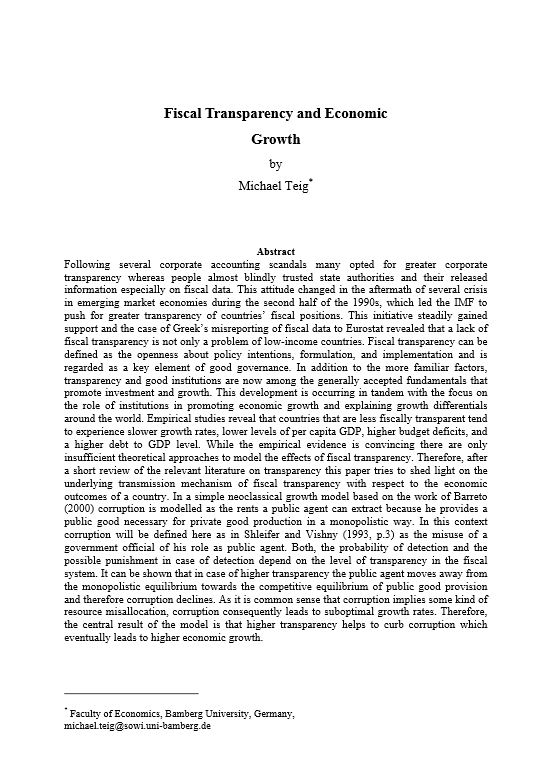
Following several corporate accounting scandals many opted for greater corporate transparency whereas people almost blindly trusted state authorities and their released information especially on fiscal data. This attitude changed in the aftermath of several crisis in emerging market economies during the second half of the 1990s, which led the IMF to push for greater transparency of countries’ fiscal positions. This initiative steadily gained support and the case of Greek’s misreporting of fiscal data to Eurostat revealed that a lack of fiscal transparency is not only a problem of low-income countries. Fiscal transparency can be defined as the openness about policy intentions, formulation, and implementation and is regarded as a key element of good governance.
Michael Teig, Faculty of Economics, Bamberg University, Germany...
Прочитај повеќе